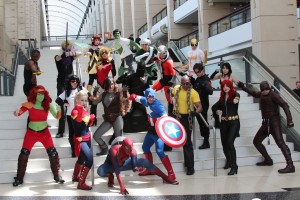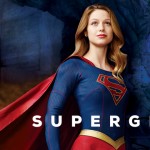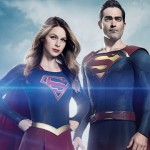Question from a reader in regards to my previous superhero post:
We all have the potential to live by their example and be heroes in our own ways, but what problems do we face in life that make superheroes important to us? How does their presence on TV, on film, and in comic books help us?
One of GK Chesterton’s most famous quotes goeth thusly: “Fairy tales do not tell children the dragons exist. Children already know that dragons exist. Fairy tales tell children the dragons can be killed.”
The same can be applied for comic books and all of the adaptations thereof. In Geekpriest, Fr. Roderick Vonhogen (whom you may know for his Star Wars reaction video that went viral last year) has a chapter that integrates his love for comic book heroes with his own coming of age story. I highly recommend you read his memoir because it shows how faith and culture can work together, even in the world of geekdom.
Warning: Spoilers for Supergirl, The Flash, and other shows will ensue.
While it’s true that none of us have superpowers or face nefarious villains on a daily basis, we are all given talents, gifts, and special skills that we can use to help make the world a better place. One reason I love Flash and Supergirl is that while the heroes have awesome powers, their real special ability is something that we can all have: the power to believe in the best in people, the ability to empathize and be compassionate towards others.
In a recent episode of The Flash, Barry Allen helps Earth-2 Harrison Wells find another option when faced with the ultimatum of “Drain Flash’s speed or your daughter will be tortured and killed.” In spite of Harry betraying everyone, Barry is willing to help the scientist by offering to save Harry’s daughter, even if that means going to Earth-2 to do so. Keep in mind, Barry basically did all of that without using any super speed. Barry is a selfless person at heart, which means that he’s willing to go the extra mile, with or without his powers.
Another example of ordinary traits being used in an extraordinary way can be seen in the DC Animated Universe direct-to-video movie Superman vs. The Elite. Eric Rodriguez, AKA Channel Awesome’s “Blockbuster Buster,” says that this short movie exemplifies Superman’s greatest power: his strength of will. He does what is right, no matter what.
While we may not face situations where we have to sentence some form of justice on a criminal, we all have the power to try and be compassionate and fair, even towards those who’ve hurt us. In a similar way, we encounter situations where we are called to have conviction and do the right thing, even if it means facing insurmountable odds or a situation where vengeance could be an easier option.
Another reader pointed out that both Jessica Jones and Matt Murdock are not particularly role model material, due to Jessica Jones being an alcoholic with severe PTSD issues and Matt Murdock having Catholic guilt over not being able to save everyone. While Jessica Jones’s cynicism leaves a bad taste in my mouth, I and many other fans of Jessica Jones found her willingness to fight and prevent Kilgrave from hurting anyone else inspiring. And while Catholics are often mocked for having a major guilt complex, some people have used those doubts to find a sense of self-worth. Faith and doubt actually go hand in hand because doubt opens up questions that help further understand ourselves and our beliefs.
I also have a personal belief that nobody is beyond saving or redemption. While it’s true that the characters in Suicide Squad are only doing black-ops missions for the hopes of getting shorter prison sentences, these same villains could’ve been heroes in another universe. There’s a movie in the DC Animated Universe called Justice League: Crisis on Two Earths in which the Justice League find themselves in a Mirror Universe in which the Justice League encountered evil versions of themselves and heroic versions of the villains.
The same can be said for the character of Captain Cold and his complex character development in The Flash and Legends of Tomorrow. Although Captain Cold started out as a major villain, he developed a more complex personality when it was revealed that he was very protective of his sister and would not resort to killing in order to get the job done. In Legends of Tomorrow, it’s implied that he resorted to becoming a criminal as a way to survive. He felt as if he had no other choice, given that he lived with an abusive father, and never thought that he could ever be a hero. However, DC Comics showed his heroic potential in an event called Flashpoint in which The Flash creates an alternate universe due to actions he did when he traveled back in time. In this series, Captain Cold becomes a hero called Citizen Cold.
But why bring up the villains at all, you ask? As I said: Everyone is capable of being a hero. We can look at the villains and see ourselves in them. We could’ve taken on a dark path if our circumstances were different and if we made different choices in life. However, even if you or someone you know is on that dark path, these same villains show that there could be a way out of the dark.











